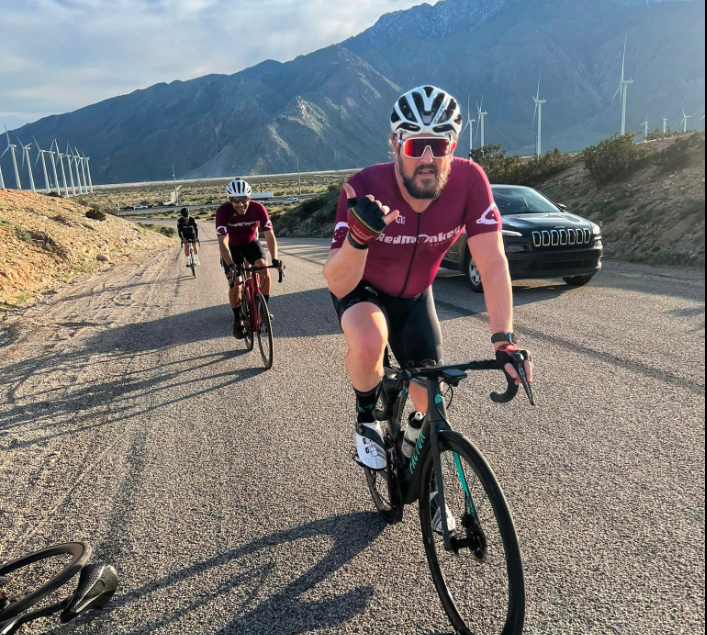If you're planning to complete a 100 mile bicycle ride, whether it's for a charity event or simply for personal achievement, you need to be prepared both physically and mentally. Nutrition and training are two of the most important factors in ensuring that you have the energy and stamina to complete such a grueling ride. In this blog post, we'll explore the key aspects of nutrition and training for a 100 mile bicycle ride.
Nutrition for Endurance Cycling
Proper nutrition is critical to any athlete's performance, and endurance cycling is no exception. In order to perform at your best during a 100-mile ride, you need to fuel your body with the right nutrients before, during, and after the ride.
-
Carbohydrates: Carbohydrates (like Ryno Power Carbo-Fuel) are essential for endurance activities like cycling. They provide the body with the energy it needs to keep going. For a 100 mile ride, you need to consume around 400-600 grams of carbohydrates the day before the ride. Good sources of carbohydrates include whole grains, fruits, and vegetables. During the ride, you should aim to consume 30-60 grams of carbohydrates per hour, depending on your weight and intensity of exercise. This can come in the form of energy gels, sports drinks, or solid foods like bananas, fig bars, or rice cakes. It's important to experiment with different types of carbohydrate sources during your training rides to find what works best for you.
-
Protein: Protein is important for repairing and rebuilding muscle tissue after long rides. Make sure to include protein in your post-ride meal. Good sources of protein include lean meats, poultry, fish, eggs, and legumes.
-
Hydration: Staying hydrated is crucial for endurance cycling. Dehydration can lead to fatigue, cramping, and even heat exhaustion or heat stroke in extreme cases. Aim to consume 16-20 ounces of water or sports drink per hour during your ride. During hot and humid conditions, you may need to increase your fluid intake to prevent dehydration.
-
Electrolytes: Electrolytes are essential for maintaining proper fluid balance in the body. They are lost through sweat during exercise, so it's important to replenish them. Sports drinks can be a good source of electrolytes, but be sure to read the label to avoid those that are high in sugar.
- Fat: While fat is often considered a bad thing, it's actually an important source of energy during endurance exercise. During long rides, your body will burn both carbohydrates and fat for fuel. Aim to consume healthy sources of fat, such as avocado, nuts, and olive oil, in moderation leading up to your ride.
-
Timing: Timing is crucial when it comes to nutrition. It's important to fuel up before your ride, during your ride, and after your ride. Aim to eat a meal that's high in carbohydrates and low in fat and protein about 3-4 hours before your ride. During your ride, consume 30-60 grams of carbohydrates every hour. After your ride, eat a meal that's high in protein to help repair and rebuild muscle tissue.
Training:
In addition to proper nutrition, training is key to successfully completing a 100-mile bike ride. Here are some tips to help you train effectively.
-
Build up gradually: If you're not used to long rides, it's important to build up gradually. Start with shorter rides and gradually increase your distance over time. Aim to ride 3-4 times a week, and try to increase your mileage by about 10% each week.
-
Hill training: Hill training is important for building strength and endurance. Incorporate hills into your rides, and gradually increase the difficulty as you get stronger.
-
Interval training: Interval training involves alternating periods of high-intensity effort with periods of rest or low-intensity effort. This type of training is effective for improving speed and endurance. Try incorporating intervals into your rides by alternating between high-intensity sprints and periods of recovery.
-
Recovery: Recovery is just as important as training. Make sure to take rest days and allow your body to recover after hard rides. Get plenty of sleep, and make sure to eat a healthy diet that's high in nutrients.
-
Mental preparation: Finally, don't forget about the mental aspect of training. Visualize yourself completing the ride, and focus on the positive aspects of the experience. Surround yourself with supportive friends and family who will help motivate you and keep you on track.
- Lactate: Lactate is your body's natural buffering agent. As your muscles burn oxygen during heavy exertion the faster they release and accumulate acid. RedMonkey Sports ACID BLOCK® with Alka-Myte® helps buffer acid and reduce muscle burn.
Nutrition and training are key components to completing a 100 mile bicycle ride. Be sure to fuel your body with the nutrients it needs to keep going, and gradually build up your endurance with a combination of hill training, interval training, and recovery. With the right preparation and mindset, you can accomplish this incredible feat of endurance and achieve your personal goals.














